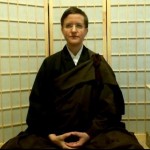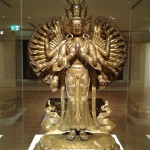 I suspect the phrase “transforming your heart” resonates with many of you, even if you aren’t quite sure what is meant by it. I think there are two reasons for this.
I suspect the phrase “transforming your heart” resonates with many of you, even if you aren’t quite sure what is meant by it. I think there are two reasons for this.
First, we want transformation – of our selves, our families, our communities, our culture, our government, our economy, our world. Something needs to be done. Even if we are able to forget this for some periods of time because of our good fortune, all around us are reminders that weigh on us: the homeless person we walked by today; the increasing number of foreclosed houses in all kinds of neighborhoods; the strange weather; the images of suffering on television. If we have any idealism or hope left, we are deeply stirred by the idea of transformation: not just some half-hearted compromise but a thorough and dramatic change, one that takes what we already have and pushes it to transcend current limits, unlock potential, and grow into something that functions beautifully.
Second, the phrase “transforming the heart” mentions this elusive but potent human concept of “the heart.” We could describe “the heart” many ways, but for today let us think of the heart as what we identify with most closely – our central source of motivation. It is not our intellect or even our conscious will. Our heart is affected by our emotions, our experiences, our desires, our fears and our view of the world, amongst other things. The heart is where we hold our best version of the truth about ourselves and our world. Our behavior is profoundly affected by the state of our heart, and in Buddhism our “behavior” means our actions of body and speech, as well as what we do with our minds.
So what do we mean by “transforming the heart?”
This is addressed in one of the most ancient collections of the Buddha’s teachings, the Dhammapada. These are the first several verses (translated by Thanissaro):
Phenomena are preceded by the heart,
ruled by the heart,
made of the heart.
If you speak or act
with a corrupted heart,
then suffering follows you
as the wheel of the cart,
the track of the ox
that pulls it.
Phenomena are preceded by the heart,
ruled by the heart,
made of the heart.
If you speak or act
with a calm, bright heart,
then happiness follows you,
like a shadow
that never leaves.
‘He insulted me,
hit me,
beat me,
robbed me’
— for those who brood on this,
hostility isn’t stilled.
‘He insulted me,
hit me,
beat me,
robbed me’ —
for those who don’t brood on this,
hostility is stilled.
Hostilities aren’t stilled
through hostility,
regardless.
Hostilities are stilled
through non-hostility:
this, an unending truth.
Unlike those who don’t realize
that we’re here on the verge
of perishing,
those who do:
their quarrels are stilled.
—
“Phenomena are preceded by the heart.” Do you realize how radical this teaching is? Phenomena, all the objects, beings, thoughts, feelings, experiences you encounter in your life preceded by your heart. What does this mean?
Like it or not, we cannot step out of our own bodies and minds. We experience everything using this body-mind (to use a term that does not presume a separation between the two) and if there is a reality separate from our perception, it is utterly and completely inaccessible to us and always will be. This is not actually a problem, just a truth that it is very important to accept and work with. We should be clear at all times that our experience is profoundly influenced by the characteristics of the tool with which we perceive it. This helps us avoid the trap of clinging to our views as if they are absolutely true. It also encourages us to pay careful attention to our body-mind and take care of it.
Let us return to the concept of our “heart.” If our heart is where we hold our best version of the truth about ourselves and our world, it is natural that every experience we have will be affected, colored, skewed and interpreted based on what is in our heart. This is what is meant by “phenomena are preceded by the heart.” We do not perceive something and then interpret it based on our heart; our very perception is affected by our heart. For a human being there is no experience of phenomena except as preceded by the heart and made by the heart.
This is not just a matter of our perception being influenced by our views, which most people would agree is a common occurrence. That assumes an objective reality with lots of interpretations. The Buddhist teaching is more radical; it does not claim there is an objective view, or that there isn’t an objective view, since in any case we can’t verify it one way or another. Buddhism concerns itself only with human experience, so the only matter of interest is the quality of that phenomenon which is made by the heart” and what can be done about it. In a sense we could say, “change your heart, change reality.”
Let me give you an example. Let’s say that in my heart I love good and fear evil. The world looks to me like precarious and dangerous place where the forces of good seem always about to be overwhelmed by the forces of greed and violence. I cannot understand what motivates people to be so cruel to one another and in my heart I simply cannot accept the injustice and violence I see in the world. I don’t know what to do with it. When I read about how some people on Wall Street profited enormously from the misfortunes of others, I see yet another confirmation that world is rotten at the core. I feel anxious about my own situation, and struggle to make sense of what is going on. At times I think I have an explanation, but then it slips away and again I feel anxiety about the looming threat I can’t manage to understand. My heart feels angry, suspicious and guarded.
Now let’s say that in my heart I accept that all beings are simply trying to avoid suffering and seek happiness. I have examined by own mind and heart and know that I am prone to selfish, greedy, judgmental and angry thoughts and feelings, so I have a sense of empathy with people who seem to be acting with greed and violence. Through observation of myself and others I have tested the theory that harmful behaviors arise from ignorance of what will truly bring us happiness, and of the fact that our happiness is profoundly connected to the happiness of others. I have never found this theory to be wanting. In my heart I have a deep faith that all beings know the difference between good and bad and want to be good. When I read about how some people on Wall Street profited enormously from the misfortunes of others, I see yet another example of how human beings created suffering though ignorance, and I know that the profiteer is suffering also, whether he realizes it or not. While at times I am prone to anxiety about my own situation, I know how to connect with my heart, which responds to examples of human ignorance, selfishness or violence with compassion for the doer of the deed as well as for the one who suffered the results.
Now, which heart would you rather have? The one that feels confused, threatened, suspicious and guarded, or the one that feels faith and compassion?
Of course, it is natural to ask which heart reflects the truth. We don’t just want to talk ourselves into a positive worldview in order to make ourselves feel better!
Buddhism is very pragmatic in answering this question, “Which kind of heart reflects the truth?” No conclusive answer will ever by found through philosophizing, or through politics, or through debating statistics or abstract concepts. Instead, we discover which kind of heart reflects the truth through direct experience. In a sense we carry out an experiment that by its nature remains entirely subjective, but is nonetheless conclusive. We try changing our heart, and see what the result is!
Carrying a heart that reflects reality allows everything to fall into place. It reveals a harmony and beauty in the world that we can easily recognize as being of characteristic of things that are true. Our own movement and function in the world flows more easily. Opportunities open up before us where we didn’t see them before. Tension is eased. We are inspired to meet challenges with dignity and feel grateful for what we learn from them. More intimacy arises with life, and with other beings. When we encounter injustice or ignorance we spend less time caught in our reactions and move more quickly to what we can do to address them.
In contrast, carrying a heart that does not reflect reality results in confusion and tension. Our minds and bodies are busy trying to find or defend our rightful place in the world. Forces often seemed against us. If we are not in despair, we are filled with a pervasive, if subtle, anxiety that our fortunes will change and all joy will be lost. Facts and experiences we don’t want to face or can’t deal with build up in the closets of our minds, cutting us off from parts of our experience. Anger builds, and any expression of that anger doesn’t seem to help that buildup.
Finding which kind of heart reflects reality is like standing on top of a log that is up in the air and resting on a single pivot point. We step carefully back and forth on the log until we find the point at which our body weight balances out the extra weight of the log on the other side of the pivot point. We know we have found the “right” spot because we are balanced on the log instead on our butts on the ground. We can use our senses to verify whether we have found a position in the world that is “true” in the sense of accurate and aligned.
Let’s look further into the nature of what the Dhammapada calls the corrupted heart. According to the verses,“If you speak or act with a corrupted heart, then suffering follows you — as the wheel of the cart [follows] the track of the ox that pulls it.” The person with a corrupted heart broods, “He insulted me, hit me, beat me, robbed me,” and does not still his hostility. In contrast, the non-corrupted heart, which results in happiness, is “calm” and “bright,” and the person with such a heart does not brood, “He insulted me, hit me, beat me, robbed me.”
Now, presumably the protagonists of these verses actually were insulted, beaten and robbed. What does it mean to brood on this fact, and what does it mean not to brood on it? This is a essential piece of Buddhist teaching that it is easy to misunderstand. If I were insulted, beaten and robbed, I would certainly be deeply affected by this. If I did not feel affected by it, I would probably be suppressing reactions that would haunt me later. We are talking about painful, traumatic experiences. The hurt, anxiety, anger and other feelings that arise in the wake of such experiences are natural and actually not a problem. That is – as long as we acknowledge them as reactions, take reasonable care of ourselves, and allow the reactions to pass.
Instead, most of us brood. Our mind gets stuck on the fact that ““He insulted me, hit me, beat me, robbed me.” The memory is like a magnet, drawing our attention over and over. The injustice of it torments us. We dream of revenge, or at least of removing the threat somehow. We ponder how to avoid such things in the future, planning ways to protect ourselves. The anger and resentment settles into our hearts, coloring everything we do and how we view the people we meet. Central to it all is the “me” – these things were done to me. They are an affront to me. We nurture our righteous hostility.
I suspect most of us also think it is reasonable to brood in such a way. And perhaps it is reasonable, but the Dhammapada suggests that if we do so, suffering will follow us like the wheel of the cart follows the ox that pulls it. Brooding corrupts our heart.
What is the alternative? The Dhammapada simply says that hostility is stilled when one does not brood. Actually, this is all there is to it. We let go of thoughts and behaviors that corrupt our heart and cause suffering.
This is not easy, of course. Different types of Buddhism have different practices we can do to help us let go. In my tradition, Zen, we learn to observe our lives very, very carefully. Through meditation and mindfulness we train ourselves not to flinch, no matter what we see. Eventually it becomes clear that nurturing our righteous hostility hurts us much, much more than it strikes back at our enemies. In fact, when we harbor anger it is like imbibing poison. It exhausts us, weakens us, and interferes with our ability to see clearly and take effective action. When we see this, a desire naturally arises to let go of that which causes suffering, like we naturally let go of an object that is burning us. I was amazed when I discovered it really was possible to let go of thoughts and feelings – when I discovered they had no inherent reality of their own, but persisted only because of the energy I was putting into them.
This is a gradual process of looking carefully and letting go. We have to let go many, many times. I don’t know anyone for whom hostility never arises, but we can get quicker at recognizing it and taking appropriate action. We brood less, and protect our calm, bright heart.
When I first encountered this teaching I wondered if the Buddha was advocating passivity. I wondered if the idea was to ignore the harm done to us and others, to cling to a calm and bright state of mind rather than take action for change. If so, then this teaching was not for me! Through experience, however, I found that nurturing my hostility was simply not as effective as dropping it if I wanted to affect any change. For example, let’s say I am speaking with someone who has made me angry, perhaps someone who has done something to my friends or family that I think is disrespectful or dangerous. As long as I am dwelling on “I” versus “you” in my heart, I am only going to arouse defensiveness and anger in the other person. If I drop the hostility and speak my truth calmly, the other person is much more likely to hear me and respond with less hostility themselves.
Transforming our own heart in turn transforms the world because hostility is stilled through non-hostility. In other translations this verse in the Dhammapada says, “hatred does not cease by hatred at any time: hatred ceases by love.” After all, when we want other people to change their behavior, we must appeal to their better natures. We must approach them as if they have compassion and want to do what is right, as if they were worthy of love. If we believe they are rotten, how can we expect them to change? True, their view of how to go about doing what is right may be terribly deluded. They may go on causing great harm and nurturing their own hostility despite our faith that they have a better nature. Even so it does not pay to nurture our own hostilities.
Usually the most difficult hostilities to let go of are those we nurture on behalf of others – especially those we are responsible for, those who cannot defend themselves, or those who cannot speak on their own behalf. Surely we owe it to them to hold on to our anger? Isn’t it like the bumper sticker says, “If you’re not outraged, you’re not paying attention?” Again, this outrage is not necessary for effective action; in fact, it obstructs effective action. And again, this outrage harms primarily harms us, corrupting our heart and causing us suffering.
The practice of transforming our hearts may sound rather undramatic: we let go our anger so we feel more calm, and then we project less hostility into the world so we’re less likely to provoke hostility and more likely to convince people to change. But this isn’t all there is to it. That’s only the practice at the most basic, tangible level. At another level, the moment we transform our heart the entire universe changes. Suddenly we are living in a world where everyone just wants to be happy and is doing the best that they can. It is no longer us against the world; we belong to the human race and see that it has easily as much nobility and compassion as it does hostility and ignorance.
And after all, as the closing Dhammapada verse in our selection reads, “Unlike those who don’t realize that we’re here on the verge of perishing, those who do: their quarrels are stilled.” We’re here on the verge of perishing. Let’s not waste our time.












